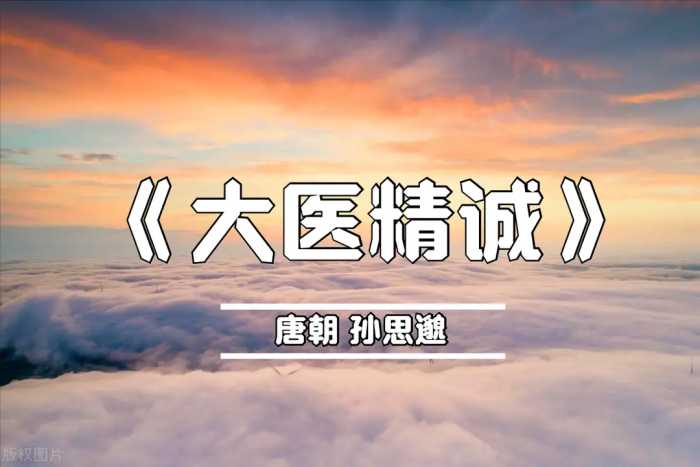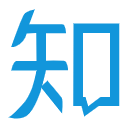原文版
医术精通
张湛曰:夫经方之难精,由来尚矣。今病有内同而外异,亦有内异而外同,故五脏六腑之盈虚,血脉荣卫之通塞,固非耳目之所察,必先诊候以审之。而寸口关尺有浮沉弦紧之乱,腧穴流注有高下浅深之差,肌肤筋骨有厚薄刚柔之异,唯用心精微者,始可与言于兹矣。今以至精至微之事,求之于至粗至浅之思,其不殆哉!若盈而益之,虚而损之,通而彻之,塞而壅之,寒而冷之,热而温之,是重加其疾而望其生,吾见其死矣。故医方卜筮,艺能之难精者也。既非神授,何以得其幽微?世有愚者,读方三年,便谓天下无病可治;及治病三年,乃知天下无方可用。故学者必须博极医源,精勤不倦,不得道听途说,而言医道已了,深自误哉。
诚心救人
凡大医治病,必当安神定志,无欲无求,先发大慈恻隐之心,誓愿普救含灵之苦。若有疾厄来求救者,不得问其贵贱贫富,长幼妍蚩,怨亲善友,华夷愚智,普同一等,皆如至亲之想。亦不得瞻前顾后,自虑吉凶,护惜身命。见彼苦恼,若己有之,深心凄怆。勿避险巇、昼夜寒暑、饥渴疲劳,一心赴救,无作功夫形迹之心。如此可为苍生大医,反此则是含灵巨贼。自古名贤治病,多用生命以济危急,虽曰贱畜贵人,至于爱命,人畜一也,损彼益己,物情同患,况于人乎。夫杀生求生,去生更远。吾今此方,所以不用生命为药者,良由此也。其虻虫、水蛭之属,市有先死者,则市而用之,不在此例。只如鸡卵一物,以其混沌未分,必有大段要急之处,不得已隐忍而用之。能不用者,斯为大哲亦所不及也。其有患疮痍下痢,臭秽不可瞻视,人所恶见者,但发惭愧、凄怜、忧恤之意,不得起一念蒂芥之心,是吾之志也。
大医之体
夫大医之体,欲得澄神内视,望之俨然。宽裕汪汪,不皎不昧。省病诊疾,至意深心。详察形候,纤毫勿失。处判针药,无得参差。虽曰病宜速救,要须临事不惑。唯当审谛覃思,不得于性命之上,率尔自逞俊快,邀射名誉,甚不仁矣。又到病家,纵绮罗满目,勿左右顾眄;丝竹凑耳,无得似有所娱;珍羞迭荐,食如无味;醹醁兼陈,看有若无。所以尔者,夫一人向隅,满堂不乐,而况病人苦楚,不离斯须,而医者安然欢娱,傲然自得,兹乃人神之所共耻,至人之所不为,斯盖医之本意也。
为医之法
夫为医之法,不得多语调笑,谈谑喧哗,道说是非,议论人物,炫耀声名,訾毁诸医。自矜已德。偶然治瘥一病,则昂头戴面,而有自许之貌,谓天下无双,此医人之膏肓也。老君曰:人行阳德,人自报之;人行阴德,鬼神报之。人行阳恶,人自报之;人行阴恶,鬼神害之。寻此二途,阴阳报施岂诬也哉。所以医人不得侍己所长,专心经略财物,但作救苦之心,于冥运道中,自感多福者耳。又不得以彼富贵,处以珍贵之药,令彼难求,自炫功能,谅非忠恕之道。志存救济,故亦曲碎论之,学者不可耻言之鄙俚也。

白话文版
专研医术
晋代学者张湛曾说过,经典的医方难以精通,这一观点已经存在很久了。疾病的内在病因可能相同,但外在症状却各不相同;反之,内在病因不同,外在症状却可能相似。因此,了解五脏六腑的充盈与虚损、血脉营卫之气的畅通与阻塞,并非仅凭借人类的感官能力可得,而必须通过诊脉来获取。脉象的浮、沉、弦、紧以及腧穴气血的流通输注的高低浅深之间都存在差别。了解肌肤的厚薄、筋骨的强壮柔弱需要用心且精细的观察,只有具备这些条件的人才能深入探讨这些道理。若用粗略浮浅的思维去探求极精细、极微妙的医学道理,将带来很大的危险。错误的治疗方法如在实证情况下使用补法,虚证情况下使用泻法,或者对于气血通利的情况仍去疏通它,明明不顺畅却阻塞它,寒证却给予寒凉药物,热证却给予温热药物,这些方法只会加重病情而不会治愈病人。因此,医方和占卜是难以精通的技艺,如果不是神仙传授,凭什么能理解其中深奥微妙的道理呢?有些愚蠢的人读了三年医方书后夸口说天下没有值得治疗的病,但当他们治疗了三年病后才意识到天下并没有现成的疗法。因此,学医的人必须广泛深入地探究医学原理,专心勤奋且不懈怠,不能凭听闻或略知一二就自以为已经理解了医学原理,否则将严重危害自己。
诚心救人
凡是品德医术俱优的医生治病,他们必须保持安定的神志,摒除欲念和希求,首先展现出慈悲同情之心,坚定决心拯救人类的痛苦。无论患者的身份、财富、年龄、外貌,以及与医生的关系如何,医生都应以同等的态度对待,不计较个人得失,珍视每个人的生命。当医生面对病人的痛苦时,应像对待自己的痛苦一样,内心感同身受,毫不犹豫地投入到拯救病人的工作中,无惧艰险、昼夜奔忙、寒暑饥渴与疲劳,全心全意地救护病人。医生不能有推托和傲慢之心,只有这样才能被称为百姓心中的好医生。相反地,对人民造成危害的医生则是大害。历史上一些有名的医生为治疗疾病往往使用活物来拯救濒危的病人。尽管人们认为家畜是低贱的,而人是高贵的,但当涉及到珍惜生命时,人和动物是平等的。伤害他人以谋取自身利益,这是所有生物共同憎恶的行为,更何况是对待人类呢!以牺牲家畜的生命来保全人类的生命,这与生命的道义背道而驰。我不使用活物作为药物的原因正是因为这一点!虽然市面上有已经死亡的虻虫、水蛭等药物可以购买使用,但这不适用于其他活物。只有像鸡蛋等尚未成形的东西,只有在紧急情况下不得已而忍痛使用。能够避免使用活物的人才是具备超越常人洞察力的人,而我无法与其相比。如果有病人患有恶性溃疡、腹泻等污臭恶臭的疾病,其他人都不愿意接触,医生应表现出内心的同情、怜悯和关心,而不应产生一丝不快的想法,这是我追求的目标。
医学品德
一个德艺兼优的医生应当具备纯净的思想和自省的能力,专注而庄重,气度宽宏、正直自信,既不卑微也不傲慢。在诊察疾病时,医生应全神贯注、详细了解病情和脉象,不容有丝毫错误。开具处方和施针时更不能出差错。尽管对于疾病应当及时救治,但更重要的是医生在面对临床时要保持清醒而不迷惑,并应周详细致、深入思考,不能轻率地追求个人才能和名声,而忽视了人命攸关的重大事件,这种行为是不道德的。此外,当医生进入病人家中时,即使环顾四周是华丽的陈设,医生也不应左顾右盼、心猿意马,也不应被琴瑟箫管的声音所分散,不应为美食佳肴而心生欢愉,就算各种美酒摆满桌面,医生也应如同未见一般。这样做的原因是,只要有一个人痛苦,整个屋子里的人都无法快乐,更何况医生身边的病人时刻都在痛苦之中。如果医生自顾自地陶醉于娱乐和自负,这种行为被人们和神明视为可耻,是道德高尚之人不会为之的。这些大致是医生应具备的基本品德。
医生准则
做医生的准则应该是慎言慎行,不随意开玩笑,不喧嚣嘈杂,不谈论他人的缺点或炫耀自己的名声,更不应诽谤攻击其他医生以夸大自己的功绩。当治愈一个病人时,不应自鸣得意,高傲自满,认为自己无人能及,这些都是医生不能克服的坏习惯。老子曾言:一个人公开行善,人们自然会回报他;一个人暗地行善,鬼神会回报他。一个人公开作恶,人们自然会报复他;一个人暗地作恶,鬼神会降祸于他。对于这两个方面的行为,阳善有阳报,阴善有阴报,这不是在欺骗人。因此,医生不能仅仅依靠自己的专长来追求财富,只要怀有救助他人痛苦的心愿,(积累阴德)在阴间地府,必将感受到福报。此外,不应因为他人富有地位,而随意给予昂贵的药物,让其难以负担,以炫耀自己的技能,这违背了儒家的忠恕之道。我立志于拯救帮助世人,因此细致地谈论了这些事。学医之人不应因我所言粗俗而感到羞愧。
English edition
Researching Medical Art
During the Jin Dynasty, scholar Zhang Zhan once said that mastering classical medical prescriptions is challenging, and this view has existed for a long time. While the underlying causes of diseases may be similar, the external symptoms can vary greatly. Conversely, different underlying causes may result in similar external symptoms. Therefore, understanding the state of the five organs and six viscera, the flow or blockage of vital energy and blood vessels, cannot be solely achieved through human sensory abilities but must be obtained through pulse diagnosis. Differences exist in the floating, sinking, wiry, tight pulse conditions, as well as the level and depth of circulation and infusion of Qi and blood in acupuncture points. Understanding the thickness of the muscles and skin, the strength and weakness of tendons and bones requires careful and meticulous observation. Only those who possess these abilities can delve into these principles. Using rough and superficial thinking to explore intricate and subtle medical principles can be highly dangerous. Incorrect treatment methods, such as tonifying methods for excess patterns or purging methods for deficiency patterns, or attempting to dredge the flow of Qi and blood in cases where it is already smooth but obstructing it instead, using cold medications for cold patterns or warm medications for heat patternsthese methods will only worsen the patient's condition without providing a cure. Therefore, mastering medical prescriptions and divination is a challenging skill. Without divine teachings, how can one comprehend the profound and subtle principles within? Some foolish individuals boast after studying medical prescriptions for three years, claiming there are no diseases worth treating in the world, but it is only after treating diseases for three years that they realize there are no readily available remedies in the world. Therefore, those who study medicine must extensively and deeply explore the principles of medicine, diligently and tirelessly, without relying on hearsay or shallow understanding to assume they have comprehended medical principles. Otherwise, they will seriously jeopardize themselves.
Sincerely Saving Lives
Doctors who possess both moral character and medical expertise must maintain a stable state of mind, free from desires and expectations. They should first demonstrate a compassionate and sympathetic heart, with a firm determination to alleviate human suffering. Regardless of the patient's status, wealth, age, appearance, or relationship with the doctor, they should be treated with equal attitude, without considering personal gains or losses, and valuing each individual's life. When faced with a patient's pain, doctors should empathize with the same intensity as if it were their own suffering. They should wholeheartedly and unhesitatingly dedicate themselves to the task of saving the patient, fearlessly enduring hardships, tirelessly working day and night, disregarding cold, heat, hunger, thirst, and fatigue, and providing comprehensive care for the patient. Doctors should not harbor excuses or arrogance, only then can they be regarded as good doctors in the hearts of the people. Conversely, doctors who cause harm to the people are a great menace. In history, some renowned doctors often used living creatures to save critically ill patients. Although people may consider livestock as inferior while humans are noble, when it comes to cherishing life, humans and animals are equal. Causing harm to others for personal gain is a behavior abhorred by all living beings, let alone when it is directed towards fellow humans. Sacrificing the lives of animals to preserve human lives goes against the ethics of "life." The reason I do not use living creatures as medicine is precisely because of this! While there are deceased insects like flies and leeches available for purchase and use in the market, it does not apply to other living creatures. Only in urgent situations and as a last resort should something like an unhatched egg be used, enduring the pain it brings. Those who can avoid using living creatures are the ones who possess extraordinary insight beyond ordinary people, and I cannot compare to them. If a patient suffers from malignant ulcers, foul-smelling diarrhea, or other putrid diseases that others refuse to come into contact with, doctors should exhibit inner sympathy, compassion, and concern without even the slightest feeling of displeasure. That is the goal I strive for.
Ethics in Medicine
An exemplary physician should possess a pure mind and introspective ability, being focused and dignified, with a broad-minded, upright, and self-assured demeanor, neither humble nor arrogant. When examining illnesses, doctors should be fully attentive and meticulously understand the condition and pulse, leaving no room for error. Prescribing medications and administering treatments must be done without any mistakes. While prompt treatment of diseases is essential, it is even more important for doctors to maintain clarity and avoid confusion in clinical situations. They should carefully and deeply contemplate, not rashly pursuing personal abilities and fame while neglecting critical matters of life and death, as such behavior is unethical. Furthermore, when doctors enter a patient's home, even if surrounded by luxurious furnishings, they should not look around, distracted by other thoughts. They should not be swayed by the sound of musical instruments or be delighted by sumptuous feasts. Even if various wines are displayed on the table, doctors should remain unaffected as if they were not there. The reason for this is that as long as one person is suffering, no one in the room can be truly happy, let alone the patients who are constantly in pain by the doctor's side. If doctors indulge in entertainment and conceit, such behavior is considered shameful by people and deities, something that noble individuals with high morals would not engage in. These are the basic ethics that physicians should possess.
Doctor's Code of Conduct
The code of conduct for doctors should be one of caution in speech and action, refraining from casual jokes, noise, discussing others' shortcomings, or boasting about their own reputation. They should never slander or attack other doctors to exaggerate their own achievements. When successfully treating a patient, they should not become self-congratulatory or arrogantly satisfied, considering themselves unmatched. These are bad habits that doctors must overcome. Laozi once said, "When a person openly does good deeds, people will naturally repay him; when a person secretly does good deeds, spirits and gods will repay him. When a person openly does evil, people will naturally seek revenge; when a person secretly does evil, spirits and gods will bring calamity upon him." Regarding these two aspects of behavior, positive deeds yield positive consequences, while negative deeds yield negative consequences. This is not deceiving people. Therefore, doctors should not solely pursue wealth based on their expertise. As long as they harbor the desire to alleviate the suffering of others (accumulate positive karma), they will surely experience blessings in the underworld. Furthermore, they should not arbitrarily prescribe expensive medications to individuals who cannot afford them just to showcase their skills, as this goes against the Confucian principles of loyalty and benevolence. I am dedicated to saving and assisting humanity, which is why I have discussed these matters in detail. Those who study medicine should not feel ashamed due to the straightforwardness of my words.





